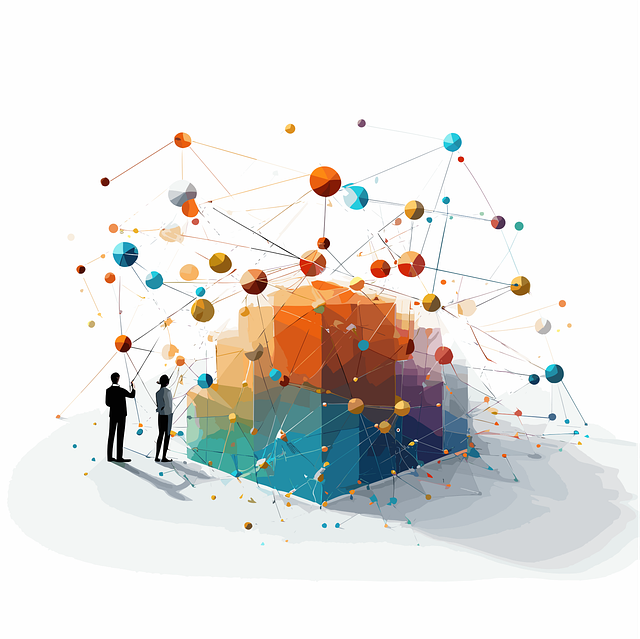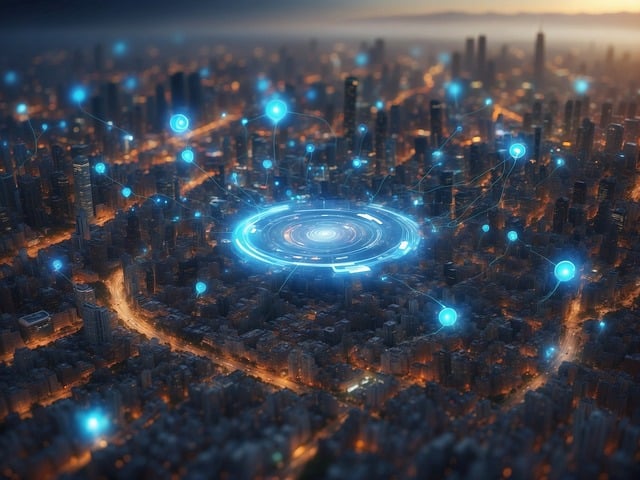AI drone-assisted irrigation inspection is revolutionizing garden care in today's digital age. Drones with high-resolution cameras and pattern recognition algorithms swiftly survey large areas, identifying moist or dry patches for precise watering system optimization. Integrating advanced machine learning algorithms enables automated decision-making based on historical data, enhancing plant health monitoring, detecting anomalies, predicting trends, and ultimately improving landscape aesthetics, longevity, and resilience. While challenges like data privacy concerns, high initial costs, and specialized skills exist, collaboration between technology developers, landscaping professionals, and regulatory bodies can make AI drone-assisted irrigation inspection accessible to all.
“Explore the future of landscaping with AI drone-assisted irrigation inspection, a game-changer in garden care. This innovative technology leverages pattern recognition algorithms to optimize water distribution, ensuring every plant receives precise hydration. Our article delves into the science behind this method, its numerous benefits, and challenges faced. From revolutionizing maintenance routines to promoting sustainable practices, AI technology promises transformative changes in the landscape design industry.”
- AI Drone-Assisted Irrigation Inspection: Revolutionizing Garden Care
- The Science Behind Pattern Recognition in AI for Landscaping
- Benefits and Challenges of Implementing AI Technology in Gardens
AI Drone-Assisted Irrigation Inspection: Revolutionizing Garden Care

In today’s digital era, the integration of Artificial Intelligence (AI) in landscaping has brought about a revolutionary change in garden care. One innovative application is AI drone-assisted irrigation inspection, which offers a sophisticated and efficient solution for maintaining lush, healthy gardens. Drones equipped with high-resolution cameras and pattern recognition algorithms can survey vast areas swiftly, identifying moist or dry patches that may require attention.
This technology enables professionals to optimize watering systems by pinpointing exact locations where adjustments are needed. The drones’ ability to capture detailed aerial images and analyze plant health patterns ensures precise irrigation, fostering a vibrant and sustainable garden environment. By leveraging AI drone-assisted irrigation inspection, landscaping experts can enhance their services, save time, and provide clients with optimized green spaces.
The Science Behind Pattern Recognition in AI for Landscaping

The science behind pattern recognition in AI for landscaping involves advanced machine learning algorithms that can analyze vast amounts of data from various sources, including satellite imagery, drone footage, and sensor readings. By training these algorithms on historical data, AI models learn to identify patterns indicative of plant health, soil moisture levels, and other critical factors that influence landscape maintenance. This enables automated decision-making processes for optimized resource allocation, such as targeted irrigation using AI drone-assisted irrigation inspection techniques.
Through pattern recognition, AI systems can detect anomalies or deviations from the norm, like areas of overwatering or underwatering, allowing for immediate corrective actions. They can also predict future trends, such as identifying plants that may require seasonal care or assessing the impact of climate change on landscape sustainability. This proactive approach not only enhances the overall aesthetics of landscapes but also contributes to their longevity and resilience in changing environmental conditions.
Benefits and Challenges of Implementing AI Technology in Gardens

Implementing Artificial Intelligence (AI) technology in gardens offers a multitude of benefits, revolutionizing traditional landscaping practices. AI-powered tools can enhance plant health monitoring through pattern recognition, enabling early detection of diseases or pest infestations. For instance, AI algorithms can analyze drone-captured images to assess plant conditions, providing valuable insights for timely interventions. Moreover, AI drones assist in irrigation inspection by identifying leaks or inefficient water distribution, optimizing resource use and reducing waste. This technology also facilitates precise planting and maintenance planning based on real-time data analysis.
However, challenges exist when integrating AI into gardens. Data privacy and security concerns arise with the collection and processing of large volumes of garden imagery. Ensuring the secure storage and handling of sensitive plant and location data is crucial. Additionally, high initial implementation costs and the need for specialized skills can deter smaller landscaping businesses from adopting AI solutions. Overcoming these challenges requires collaboration between technology developers, landscaping professionals, and regulatory bodies to establish robust frameworks that balance innovation with data protection and accessibility.
AI technology, particularly through AI drone-assisted irrigation inspections, is transforming landscaping practices. Pattern recognition algorithms enable efficient analysis of vast amounts of garden data, optimizing water usage and enhancing plant health. However, implementing AI in gardens comes with challenges such as initial cost and privacy concerns. Despite these hurdles, the benefits of AI technology in landscaping are undeniable, promising a more sustainable and vibrant future for gardening.
